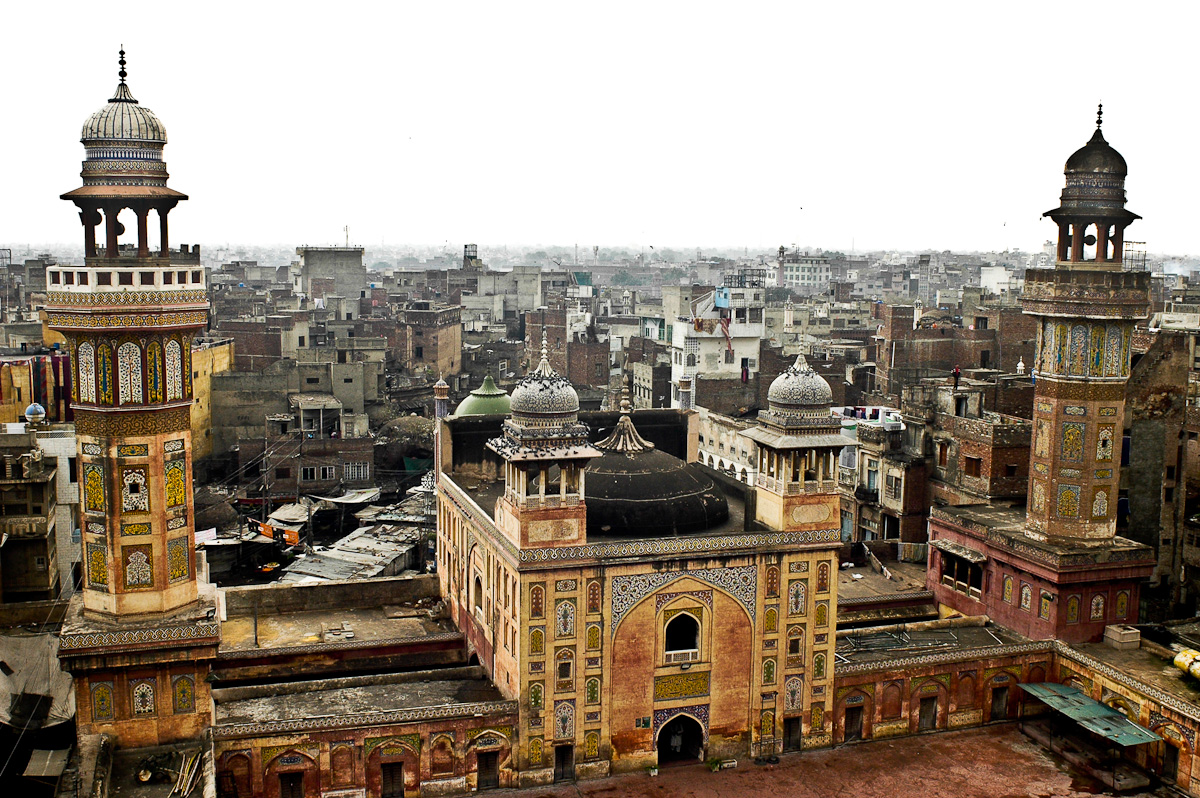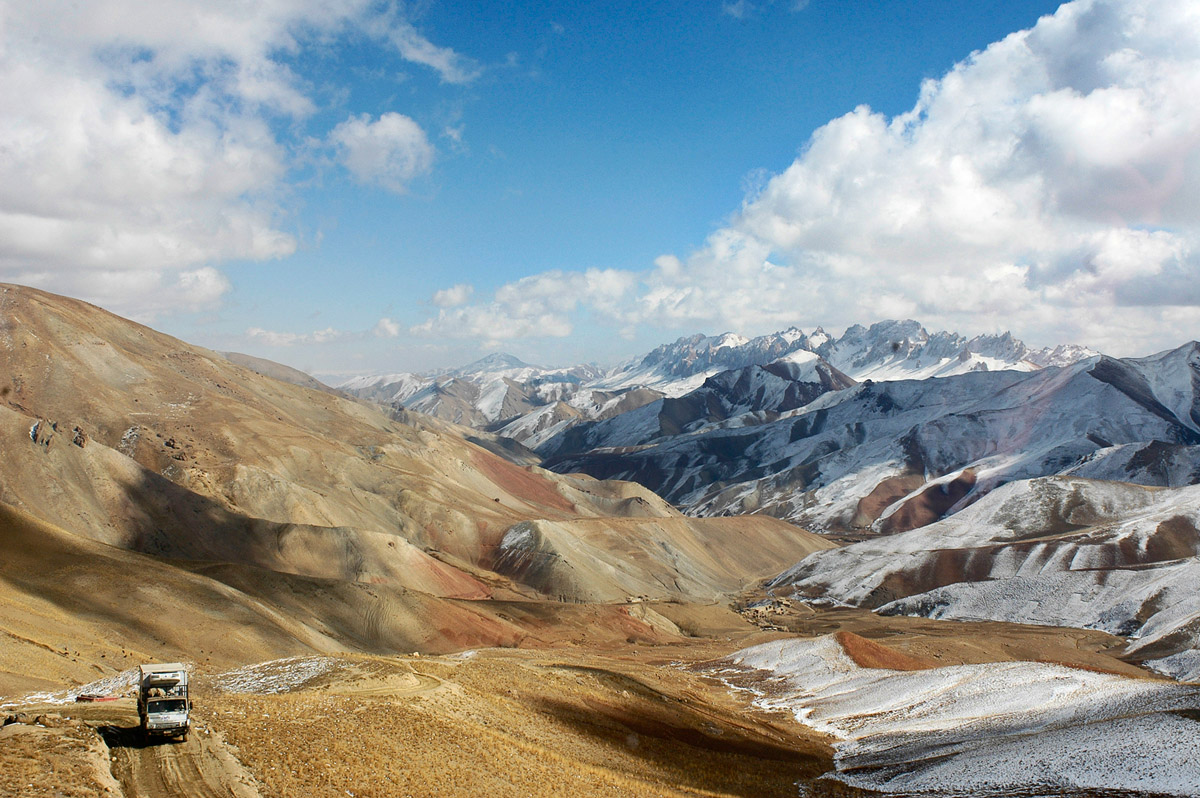
"It's been a difficult year," Pakistani Foreign Minister Hina Rabbani Khar acknowledged in an interview in her office in Islamabad last week. That's a bit of an understatement for a first year on the job in which she has had to weather a series of diplomatic crises including turban-bomb assassinations, terrorist extraditions, and friendly-fire incidents. Yet she was also eager to pass on the message that, despite the barrage of bad news out of Pakistan these days, she feels the momentum remains on her side. "I believe in proactive, not reactive diplomacy," she said.
A delegation led by her Indian counterpart, External Affairs Minister SM Krishna, was arriving in Pakistan the next day, and Khar spoke with a restless energy that betrayed both sleep deprivation and excitement. "I'm quite confident that with India we have it on the right track," she said.
For Khar, Krishna's visit was the culmination to more than a year's worth of efforts to normalize relations with Pakistan's neighbor and archrival, which had begun with a trip to New Delhi almost immediately after her appointment as minister in July of last year. The media scrutiny was intense as Pakistan's first female foreign minister and the 34-year-old scion of a prominent political family: The Indian press cooed over Khar's wardrobe and looks, while skeptics derided her as a neophyte appointed as a sop to Pakistan's military, which retains a powerful influence over key aspects of the country's foreign and security policy.
Since then, however, the two countries have made unprecedented progress toward re-establishing trade relations, despite continuing tensions over Kashmir and the 2008 Mumbai attacks. Pakistani President Asif Ali Zardari made a successful visit to India in April. Now Krishna was bringing a deal on a liberalized visa regime that would enable ordinary citizens of each country to visit to be signed during his visit.
Indeed, even as the country's relationship with the United States has plummeted over the past years — battered by incidents like the unilateral U.S. raid to kill Osama bin Laden in Abottabbad, an errant American airstrike that killed 24 Pakistani soldiers last November, and U.S. accusations that Pakistan supports militant groups like the Haqqani network in Afghanistan — its relations with its neighbors in India, Afghanistan, and Iran have steadily improved, part of a regionally focused foreign policy pushed since 2008 by the Pakistan People's Party-led civilian government and backed by Pakistan's generals.
"I would give credit to the PPP, and to the military," said Ejaz Haider, an Islamabad-based analyst and columnist for the Express Tribune. "The military's made a conscious attempt to stay away from the political arena. The tail used to wag the dog — foreign policy was dictated by security policy. I think that's changing."
In July, Khar traveled to Kabul with a high-powered Pakistani delegation that included Prime Minister Raja Pervez Ashraf, advisor on interior affairs Rehman Malik, and Pakistan's new spy chief, Lieutenant General Zaheer ul-Islam. After inaugurating a new embassy complex, the delegation was invited to lunch with President Hamid Karzai, despite tensions in the Afghan press and parliament over cross-border firing incidents.
Most significantly, the Afghans sitting in the front row at the ceremony for the embassy opening included Afghanistan's most outspoken anti-Taliban figures, frequent critics of Pakistan who once fought with the Northern Alliance on the opposite side in the civil war, such as the former presidential candidate Abdullah Abdullah, Yoonus Qanooni, Mohammed Mohaqiq, and Faizullah Zaki, a representative of the Uzbek strongman, Abdul Rashid Dostum. Relations between Pakistan and the former members of the Northern Alliance had hit a rough patch when their preeminent politician, Berhanuddin Rabbani, was assassinated in Sept, 2011, in a turban-bomb attack that many of these same figures had publicly blamed on Pakistan.
Their presence at the event was the result of months of careful diplomacy by Pakistan's gregarious veteran ambassador, Mohammad Sadiq, and then consolidated by Khar over the last year. "Three or four years ago we have very little contact with the political leaders of the North," said Sadiq. "Now we have a very public and open relationship."
According to Khar, then Prime Minister Yousuf Gilani made with the Northern Alliance faction during his visit to Kabul last summer, in the wake of Rabbani's assassination. "Then in February, I met each one of them extensively, you know, half an hour, forty-five minutes," she said. "This time the prime minister met each one of them, called on them, and then they were present at the embassy. They were all sitting there."
While Pakistan's relationship with Iran has always comprised both mutual interests and a rivalry for regional influence, Islamabad has refused to bow to U.S. pressure and has moved ahead plans for a gas pipeline with Iran, which Russia's Gazprom has expressed interest in building (Russia's president, Vladimir Putin, is planning to visit Islamabad next month). Pakistan and Iran also recently signed an agreement to barter fertilizer for wheat, an arrangement in part aimed at circumventing financial sanctions on Iranian banks. Relations also took a turn for the better in 2010, when Iran captured Abdol Malek Rigi, the head of the militant group, Jundullah, which had carried out bombings in Iran, and who the Iranian government had alleged was being sheltered in Pakistan. Rigi is said to have been captured with Pakistani help. (There have been allegations that Jundullah has links with the CIA's clandestine program in Iran, and in his televised confession from an Iranian prison, prior to his execution, Rigi claimed he was on his way to a U.S. airbase in Kyrgyzstan. The United States has denied any connection with him.)
But of course, India is always the central question in Pakistani foreign policy. At a press conference at the conclusion of their meeting on Saturday, Krishna and Khar both sounded upbeat as they promised future cooperation. Press coverage in Pakistan and India was generally positive, particularly the visa agreement, which will make it easier for ordinary citizens of each country to visit each other, including families separated since 1947 partition.
"What we need to do know is consolidate the relationship so that there are no setbacks," said Salman Bashir, Pakistan's high commissioner in New Delhi, and one of the key architects of the country's India policy. "It's very fragile. Just one incident that gets taken up in the press, and it can undo all our progress."
Very serious obstacles to Pakistan-India relations remain, most notably the territorial disputes over Kashmir, Sir Creek, and the Siachen Glacier. India also continues to allege that Pakistan's intelligence services were at least partly responsible for the devastating 2008 Mumbai attacks — a claim Pakistan denies.
However, both parties have opted to table those disputes for the moment and focus on economic issues that offer the best possibility of immediate and uncontroversial gains, by easing restrictions on cross-border exports and investment. As a result, trade has gone from $300 million in 2004 to $2.7 billion last year, generating momentum that diplomats on both sides hope will withstand the inevitable tensions over security issues. "The only way to move forward is to work on all these other fronts," said Bashir, who was in Islamabad for Krishna's visit.
So far, Pakistan's military seems to be cautiously on board with the civilian government's rapprochement. The process has also been helped by the fact that engagement with India is a non-partisan issue in Pakistan, with support from all political parties — unlike in India, where the government and the Hindu nationalist opposition frequently jockey for position over the issue.
"Post 1999, there's been a consensus across the political divide," said Haider, the analyst. "There's differences in opinion in terms of the relationship with the U.S., given the immediate situation, but not with India."
Indeed, while both Khar and the Pakistani ambassador in Washington, Sherry Rehman, have been smooth and measured advocates of better relations with the United States, hostile sentiment has been growing in each country. With general elections on the horizon in Pakistan, denunciations of the U.S. drone campaign in the tribal areas have become common across from political parties. In Washington, there have been calls in Congress to strip Pakistan of U.S. aid as a result of its imprisonment of Dr. Shakil Afridi, a Pakistani citizen who allegedly collaborated with the CIA in its search for Bin Laden.
Khar bristled when asked if the deteriorating relationship with the United States had pushed Pakistan to seek better relations in the region. "To suggest that this is a reaction, when in fact we've been very deliberate and purposeful," she said. "For us the cornerstone on Pakistan's foreign policy today is to be able to establish relationships within the region."
But Haider believes that Pakistan sees a need to hedge its bets. "Pakistan is looking at the situation with the U.S. This is why we're diversifying," he said. "But the deteriorating relationship with the U.S. has only acted as a catalyst for this. There's a deeper structural change here, in that we cannot rely on a single country."



